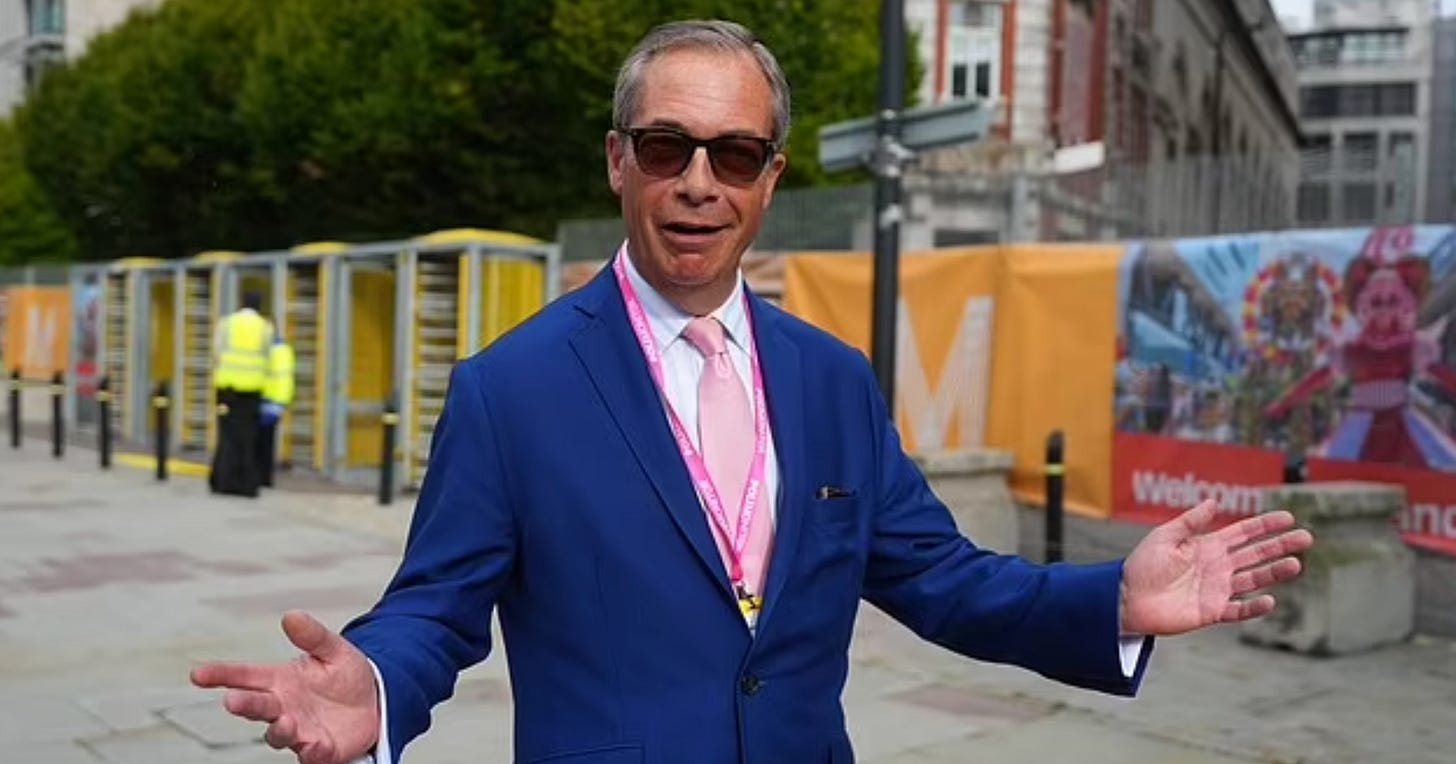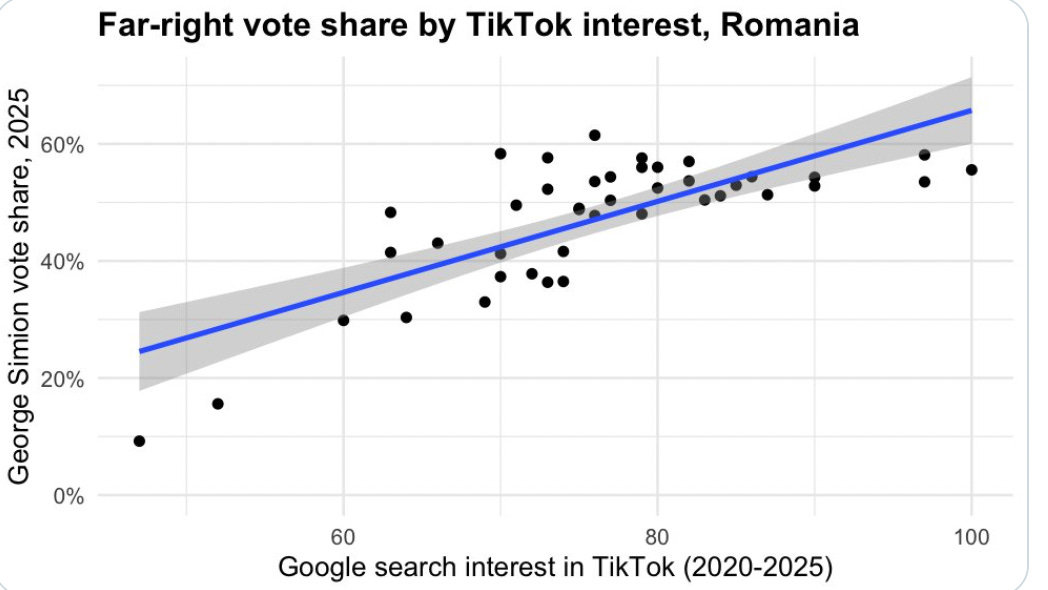Why Is TikTok Such Rocket Fuel For Populists?
Three Reasons It Gives Right-Wing Populists The Advantage
Catch-up service:
We’re All Viennese Now
Why Am I At My Lowest In The Middle of the Night?
Seven Features Of Post-Literate Politics
How To Write a Book
Podcast: James Marriott on Britain’s Elites
Nine Principles For Success In the Age of AI
Romania has elected a new president. Nicusor Dan, mayor of Bucharest (and maths genius) is a reassuringly sensible centrist. To the relief of Ukraine, and the EU, he overcame a surprisingly strong challenge from the far right, in the person of George Simion. Simion ran on an anti-West, anti-Ukraine platform, and won a shock victory in the first round of voting. (In the final round, he won 46% of the vote.)
Simion was riding a wave of anti-establishment anger among voters which was exacerbated by the decision of Romania’s constitutional court to annul a prior first-round election, late last year. That election was won by another far right, anti-West candidate, Calin Georgescu, and was annulled on the basis that Russian interference had been discovered. Many voters suspected, reasonably enough, that the real reason is that the establishment didn’t like the result.
With those two paragraphs I have pretty much exhausted my knowledge of Romanian politics. But I want to draw your attention to a couple of things before we move on. The first is that this election should complicate any idea that the rise of far-right populism in Europe or elsewhere is simply a reaction to immigration. Romania has relatively few immigrants.1 Simion is nominally anti-immigration, but it was not a big part of his campaign.
The second is this graph, courtesy of the Economist’s Owen Winter:
Of course, this is just one dataset, and there are possible confounders here, like age. Simion performed strongly with younger voters, and younger people use TikTok more. So maybe this is just coincidental. Or maybe TikTok is driving voters to the right.
The latter proposition starts to look more likely when you look at evidence from other countries, including my own. In British politics, Nigel Farage is the undisputed king of the platform. His party’s posts get almost 14 times more engagement than those of the other main parties. A study of TikTok usage during the American election found that Republican content did significantly better than Democratic content (there’s a reason Trump changed his mind about banning it). A study of Swedish politics found a similar asymmetry. Right-wing populists love TikTok, and TikTok loves them.
As the FT’s Janan Ganesh recently observed, populism does not go away when voters are better off; if anything, the opposite. America’s populist-in-chief has won power, twice, during a fifteen-year wave of prosperity (which, contrary to rumour, wasn’t confined to the already-rich). East Germany has been getting steadily richer and steadily more right-wing. We used to think populism was driven by high levels of crime; crime has been falling in the UK and the US.
In fact, if you try to account for the remarkable, synchronous success of right-wing populists across the world in recent years, you will search in vain for a common causal factor, as long as you’re looking for one rooted in economic or social change. There is no consistent material explanation for it. What we do know is that it correlates with a rise in social media usage, and in particular with usage of the platform on which all the other platforms are converging.2 TikTok is something like the final form of social media, perhaps all media, and it may be as close as we get to a root cause of right-wing populism.
But why? Why is it rocket fuel for the Trumps and Farages and Orbans of the world? What is it about the way this particular form of mass communication that makes it such fertile soil for them? I propose three reasons.
After the jump, for paid subscribers only: the three reasons TikTok fuels populism, plus my thoughts on the Biden revelations and an ample rattle bag of delights. The Ruffian depends on paid subscriptions.





